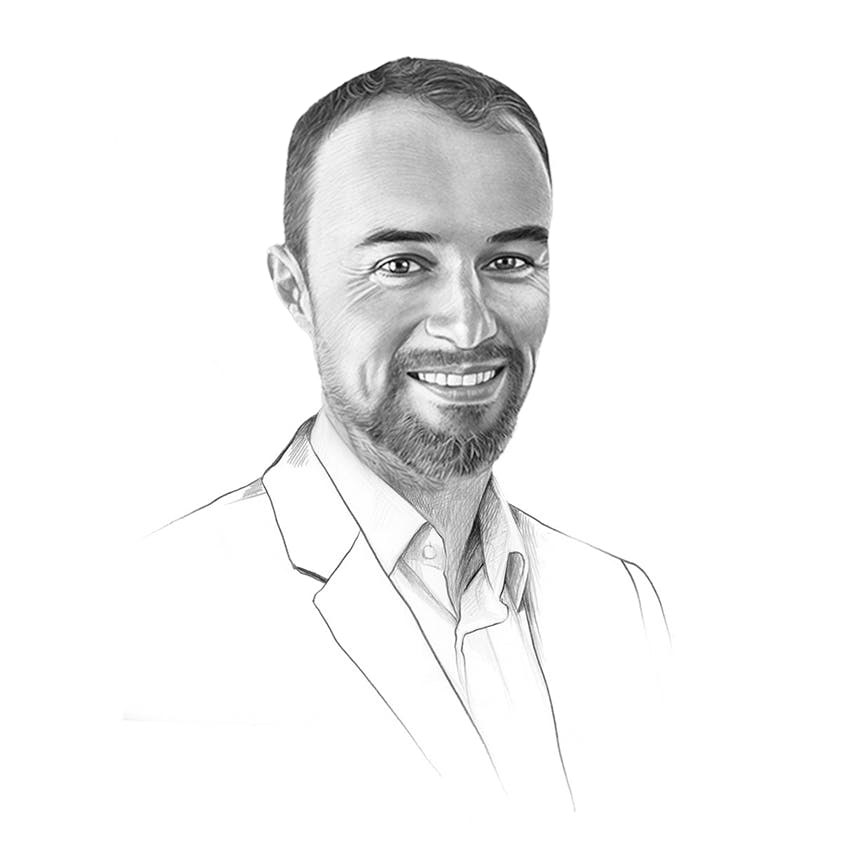
Security: How We Protect Your Assets
With True Wealth, you are placing your trust in a successful and innovative online wealth manager. And at the same time, you are benefiting from the security of Swiss banks.
Can I really invest my money with a company that has been offering wealth management services without a bank counter since 2014? Isn't it much safer with a bank? If you are asking yourself these questions, it is good to know how we manage your assets. And where exactly your money and securities are kept. Namely, not with us at all – but with a custodian bank.
Your assets are held at a Swiss bank
In Switzerland, only banks (and securities firms) maintain accounts for cash and securities deposits. When you entrust us with the management of your assets, your money is not held by us – we open an account for you and your assets at a bank. This type of bank is called a custodian bank.
We have access to your account at the custodian bank, but only to a limited extent. We can buy and sell securities on your account. You give us power of attorney for this, as it is the core of our mandate. We are also allowed to debit our wealth management fee from your custody account.
Beyond that, payments can only be made to a verified account in your name. This has traditionally been the case with traditional wealth managers, and it is no different for a fintech company like ours.
To make things easier, most digital wealth managers work with just one custodian bank. At True Wealth, you even have a choice between two different banks. We work with Basellandschaftliche Kantonalbank (BLKB) and Saxo Bank (Switzerland) AG.
When you open a new wealth management mandate, you decide which of the two will be your custodian bank. In any case, when you open your user account, we will create an account for you with the custodian bank in your name.
Your money and securities are held there in your name. Even in the unlikely event that we should cease to exist at some point, you can still access your assets there. For example, by continuing to use your account as before. Or by withdrawing the cash and selling the securities or transferring them to another account.
The question remains: how secure are your assets with our custodian banks?
Deposit protection or state guarantee
By international standards, Swiss banks are considered relatively safe. Nevertheless, it is good to know what to expect in the worst-case scenario – if your bank goes bankrupt.
Your cash – lawyers call it sight deposits – is protected at Swiss banks. This is ensured by depositor protection. It applies to all accounts at Swiss banks. This means that balances are protected up to CHF 100'000.
To this end, the banks have undertaken to jointly secure customer deposits in the event that one of them goes bankrupt. This is guaranteed by the association esisuisse, but there is no security fund.
Some banks offer even more security. Cantonal banks in particular are often provided with a state guarantee by the canton. This guarantee is not limited in amount. The canton of Basel-Landschaft is therefore liable for the liabilities of our custodian bank BLKB.
True Wealth is regulated by FINMA
True Wealth AG also has a license from FINMA to manage pension assets and is subject to direct supervision by FINMA. The license covers both the management of pension assets (such as pillar 3a) and the management of discretionary assets. Unlike wealth managers who exclusively manage discretionary assets, True Wealth is not only licensed by FINMA but also supervised by it.
Pillar 3a assets are deposited with a pension fund (in our case, the Vorsorgestiftung 3a Digital) as required by law. As the custodian is Basellandschaftliche Kantonalbank, the unrestricted state guarantee for pillar 3a funds also applies here in the event of the bank's bankruptcy. This is important because the third pillar does not offer any depositor protection.
Cash is only a small part
Both depositor protection and the state guarantee serve to protect cash. However, the cash balance in your account only makes up a small part of your portfolio. When we work to achieve a good return for you, we rely on securities – more specifically, exchange-traded funds (ETFs) and, in pillar 3a, index funds.
Securities are not deposits
Funds are not deposits with the bank. They never appear on the bank's balance sheet. The bank only holds the fund units in custody for you. Even though this is done digitally today, you can think of it as if you had your own safe deposit box at the bank. Your units are stored in this box. If the bank goes bankrupt, the contents of the safe deposit box still belong to you. No creditor of the bank is allowed to enter the vault and help themselves.
However, depending on the custody agreement, a bank may lend shares from your box. This is called securities lending. It is common practice, especially among investment banks. It is mainly used for betting on falling prices, known as short selling. Anyone who wants to sell a share or ETF that they do not own must first borrow the security.
If the short seller gets into financial difficulties and cannot return the borrowed security, it is lost to the owner. It is therefore good to know that we have excluded securities lending at both BLKB and Saxo Bank (Switzerland). Securities lending does not take place here. Your shares in the ETF remain your shares and are not lent out.
ETFs are separate funds
This raises the question of who provides the ETFs. In our clients' portfolios, we rely on funds from major providers such as UBS, iShares (BlackRock), Vanguard, and HSBC. The size of these providers already ensures a certain degree of security. But the most important thing about ETFs is that they are separate funds.
For example, an ETF on the Swiss SMI index buys shares in all twenty companies included in the index. In the proportions in which they are included in the index. These shares are not bought by the ETF provider, such as UBS. The ETF itself buys them, and they are owned by the ETF, not UBS.
Securities lending can also take place within the funds. The income from lending helps to keep fees low. We therefore use a mix of ETFs with and without securities lending.
For our clients' portfolios, we generally use ETFs that actually purchase and hold the shares or bonds. These ETFs are called physically replicating ETFs because they replicate the index from its components. The only exception we currently make is for commodities (otherwise the fund would have to rent oil tankers and wheat silos): here we use an ETF that replicates synthetically. It replicates the performance of commodities via derivatives and holds most of the fund's assets as collateral in money market investments.
Protection is only one side of the coin
We do everything we can to protect your assets in the best possible way. This includes not only the structural separation of the wealth manager and custodian banks. We also continuously invest in our technical infrastructure, regularly conduct external penetration tests, implement two-factor authentication, and regularly train our employees. Withdrawals can only be made to a verified bank account in your name.
Depositor protection or state guarantees secure cash holdings. Special funds and a largely complete abstention from securities lending ensure the security of securities. Direct supervision by FINMA provides additional investor protection.
There is no such thing as complete and absolute security: if you want returns, you have to take risks. We can help mitigate fluctuations and achieve the highest possible returns through diversification and rebalancing. We do this at fees that do not detract from your returns.
However, even we cannot change the fact that the market fluctuates.
About the author

Founder and CEO of True Wealth. After graduating from the Swiss Federal Institute of Technology (ETH) as a physicist, Felix first spent several years in Swiss industry and then four years with a major reinsurance company in portfolio management and risk modeling.

Ready to invest?
Open accountNot sure how to start? Open a test account and upgrade to a full account later.
Open test account